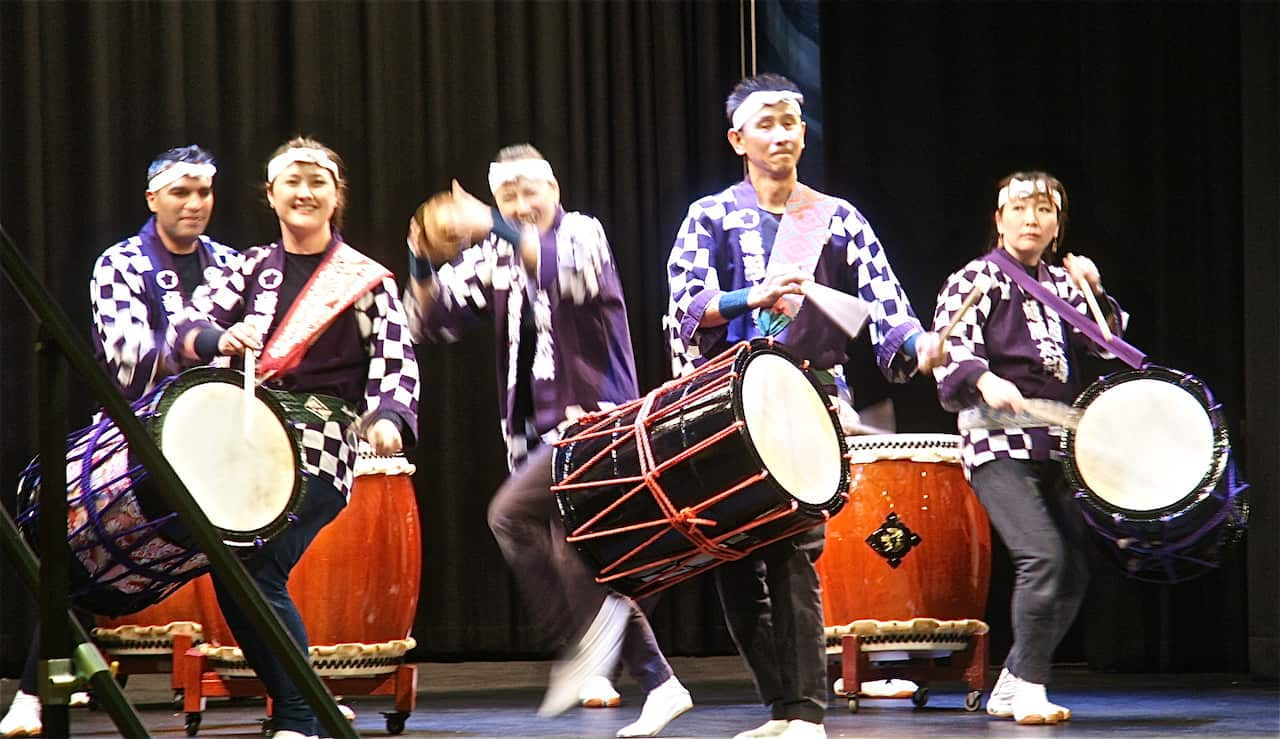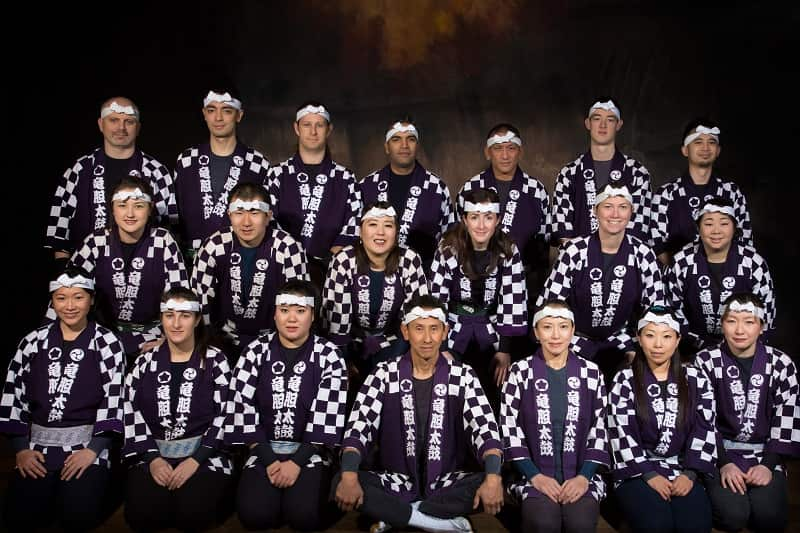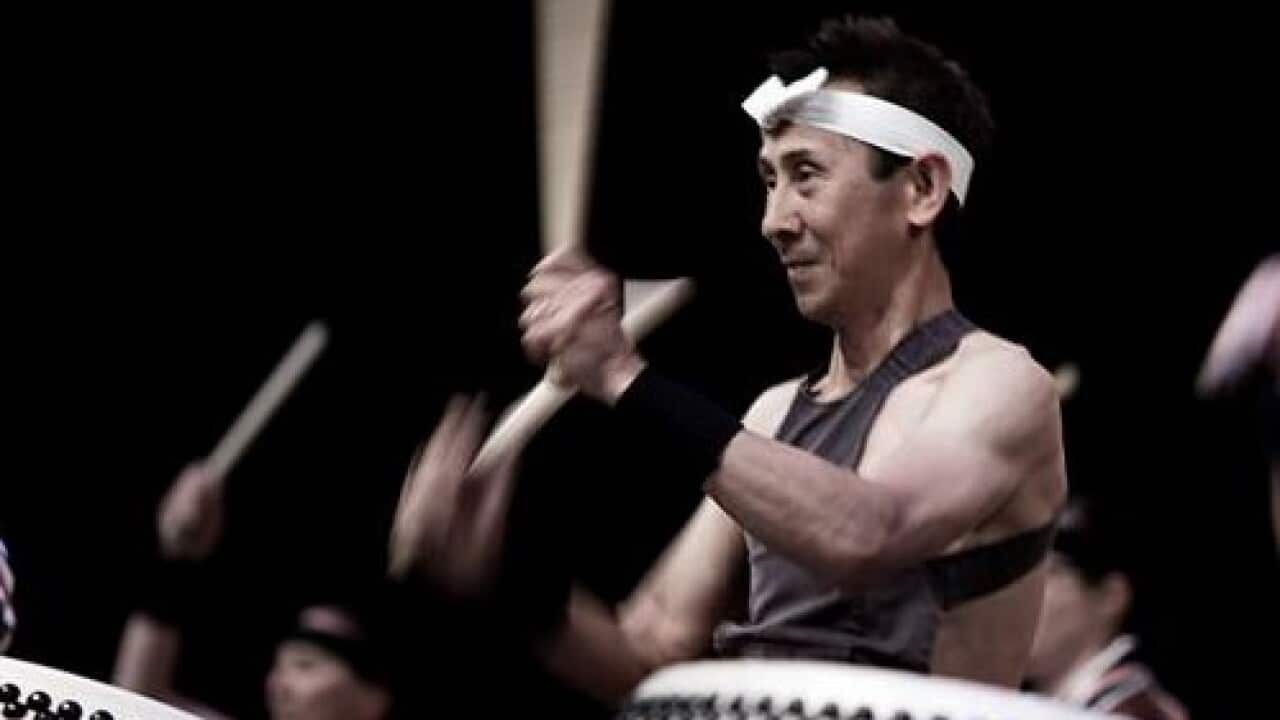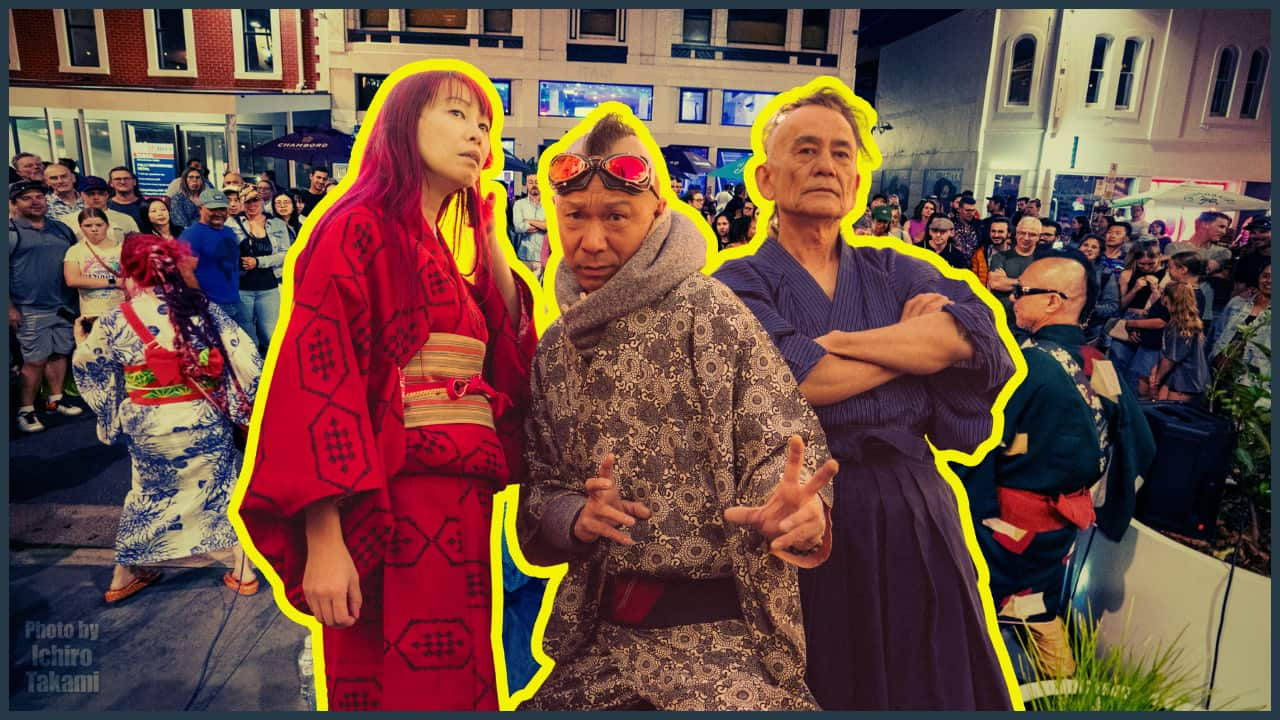Toshinori Sakamoto came to Australia in 1995 as an assistant Japanese teacher and started teaching taiko drumming in Melbourne a year later. His taiko group, Wadaiko Rindo, began with just four members and now is 130-strong; around 80 per cent of the students are non-Japanese.
The word taiko means any kind of drum or percussive instrument in general and they range in sound and size. In order to specifically refer to Japanese drums, people use the term of wadaiko (和太鼓), which means Japanese drums and drums of harmony.
“When I first came to Australia, nobody knew what wadaiko was," says Mr Sakamoto. "There were not so many interests in it either.

“I brought only two taiko with me at that time. I didn’t know how to construct taiko but we had to make everything by ourselves.”
In 1995, there were three taiko groups in Australia, in Adelaide, Brisbane and Melbourne. Ataru Taru Taiko in Adelaide, thought to be the first taiko group in Australia, made their taiko out of wine barrels.
Now the number of taiko groups in Australia is around 40.
'Reminds them of the war'
However, Mr Sakamoto recalls that there were some who had issues.
"The most unforgettable thing in my 25 years here is, I think it happened in 1999, our performance for the Melbourne International Festival was cancelled at the last minute due to complaints from the RSL (Returned and Services League).
"They said taiko reminds them of the war and was not appropriate for the festival.”
His taiko class was inundated with media crew, and the next day the cancellation of the performance was reported in an article titled “Taiko: War drums”.
“It was a shock to us. I’ve never viewed taiko as something associated with the war,” he said.
During the second lockdown in Melbourne, Mr Sakamoto produced a 10-minute video titled 'Reflecting 25 years of taiko in Australia' for the 11th World Taiko Conference 2020 which was held digitally in December 2020. In it he spoke about the RLS complaint.
Beyond borders, beyond tradition
Despite some misunderstandings on what taiko is about, the number of taiko groups in Australia has kept rising.
On the back of the growth, in order to connect the groups, share knowledge and train together, Mr Sakamoto and Motoyuki Niwa of a Brisbane-based taiko group, Batari, started a biennial event called the All Australian Wadaiko Festival in 2008. The festival last year was hosted by a Sydney-based taiko duo YuNiOn and held digitally.

Globally, Australian taiko has increased its presence. Taikokoro, a Melbourne-based non-profit organisation, is hosting the 12th World Taiko Conference for the first time in Australia.
“Taiko is music and also a physical performance. So, you can enjoy both," says Toshinori Sakamoto.
"Its power and the vibration you feel. We visit primary schools often and see the schoolkids enjoy taiko with all their bodies. That made me think that taiko has something special which stirs our souls regardless of our backgrounds. That’s one of the things I found in Australia”, he said.
His taiko group Wadaiko Rindo marked its 25th anniversary in coronavirus-ridden 2020.

They had to postpone its anniversary concert, which was originally planned for last October. The new date has not been set yet but, according to Mr Sakamoto, the concert will be a non-conventional taiko musical.
“Playing and teaching taiko in a multicultural setting, it can grow ‘wider’. Collaborations with didgeridoo, dance and singing (from other cultures). There are more choices and opportunities in a way, compared to a traditional setting in Japan.”
Wadaiko Rindo will perform for the Melbourne Japanese Summer Festival on the 28th of February. The festival will be digital for the first time.




